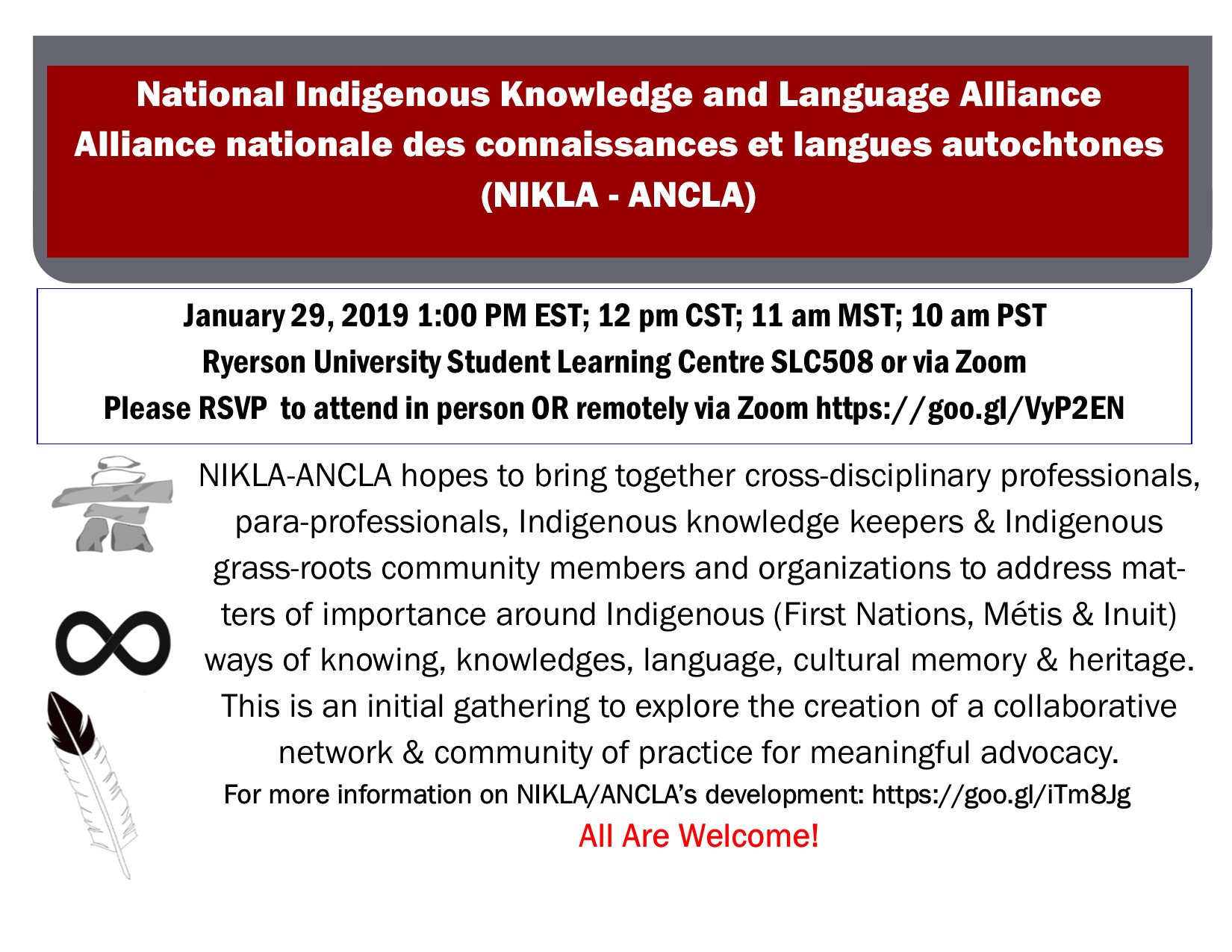Happy Indigenous Peoples Day!
To mark National Indigenous Peoples Day we are pleased to announce that the CFLA-FCAB’s Indigenous Matters Committee’s – Red Team-Joint Working Group on Classification and Subject Headings and the National Indigenous Knowledge and Language Alliance (NIKLA) is releasing the First Nations, Métis, and Inuit – Indigenous Ontology (FNMIIO). This initial release of community names is a soft launch is a first step in a longer project and represents the equal and collaborative contributions of its members.
NIKLA and the Joint Working Group acknowledge that the ontology builds on the work of many Indigenous peoples who have long advocated for the importance of respectfully representing Indigenous knowledge, culture, and communities in libraries. This living ontology respects, acknowledges, and supports Indigenous sovereignty over knowledge. The First Nations, Métis, and Inuit – Indigenous Ontology (FNMIIO) soft launch will facilitate community feedback, corrections and expressions as needed and the Joint Working Group/NIKLA will respond to these contributions by updating this living document at regular intervals.
The FNMI Ontology is released through the National Indigenous Knowledge and Language Alliance (NIKLA) and represents an initial effort to improve the representation of Indigenous peoples and communities in libraries, archives and other cultural memory institutions a group of volunteers, working with the (spell out) CFLA-FCAB Indigenous Matters Committee – Red Team Joint Working Group on Classification and Subject Headings and others that have joined this group via the National Indigenous Knowledge and Language Alliance NIKLA ANCLA, have compiled a working list of Indigenous Names to better reflect how Indigenous people currently prefer to refer to themselves. This is a living document that will be updated and change as more information is gathered or realized in the course of research and/or consultations.
The Joint Working Group on Classification and Subject Headings, led by Camille Callison, Stacy Allison-Cassin, Alissa Cherry and F. Tim Knight, is dedicated to identifying and promoting best practices, supporting reconciliation and meeting the needs of Indigenous communities and have come together to fulfill and implement recommendation #5 of the CFLA/FCAB Truth & Reconciliation Committee report:
“Decolonize Access and Classification by addressing the structural biases in existing schemes of knowledge organization and information retrieval arising from colonialism by committing to integrating Indigenous epistemologies into cataloguing praxis and knowledge management.” CFLA-FCAB Truth & Reconciliation Committee report
This first draft of the “First Nations, Metis and Inuit – Indigenous Ontologies” (FNMIIO) located at: https://docs.google.com/spreadsheets/d/e/2PACX-1vSOKcm9HB-28iSqNN3sQd5hV7bMLMGpCeGL0dkQgyg2AiZAMWUF0sp98GyxIvLXYIWqSZ3nX_j_q4UN/pubhtml is a living document and we welcome and encourage feedback on any aspect of the data found in this spreadsheet. Please contact us with any corrections or inaccuracies you find or if you have suggestions for improvement.
Future plans for this vocabulary include distribution as MARC authority records and in linked data formats (RDF/XML, JSON-LD, Turtle, etc.).
Joint Working Group on Classification and Subject Heading/NIKLA members
|
|||||||||||||||||||||||||||||||||||||||||||||||||||||||||||||||||||

